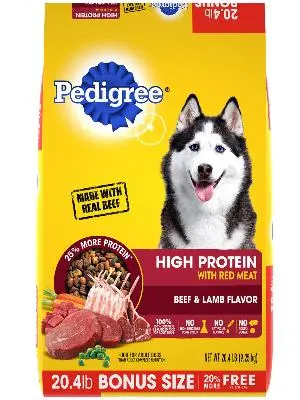Puffery Claims In Petfood Marketing

Pet food product manufacturers want to fill the innovation pipeline with products and ideas that open up new market possibilities for them.
A pet food company’s long-term success is dependent on its ability to keep up with the latest trends in the industry and remain competitive.
In order for a pet care brand to succeed, it must use, primarily, two important strategies:
- Good science
- Effective marketing
Consumer desire and nutritional science are not always in sync. Even if animal nutritionists advise against specific ingredients, formulations, or forms, pet owners may insist on them. It’s not easy to make a new line of pet products that is both scientifically sound and good for business.
A product’s performance and ability to sustain pet owners’ expectations for quality and nutrition will suffer if the research behind it is weak. And if the product doesn’t have the right story to get pet owners interested without good marketing, it may fail.
Labelling claims may make products more visible to pet owners. With so many products in the pet food industry fighting for consumers’ attention, it’s no surprise that each brand/ product is trying to be different and unique.
It’s becoming more common for pet owners to seek pet products that aren’t only nutritional, but also practical in some manner, tailored to their dogs’ specific requirements.
Food label claims can be broadly categorised into four types.
- Nourishment
- Health
- Quality
- Planet.

Nourishment
Many people believe that a product is more expensive because it uses more sophisticated, elevated language in its labelling and descriptions. These assertions are sometimes referred to as “puffery claims” or misleading claims since they employ language that appeals to pet owners and promises that their product is better for their pets. However, this does not necessarily imply that there are a lot of studies, scientific proof, or validation behind such statements. Customers must be cautious.
General statements which fall in this category are
- High in ingredient/ingredient emphasis
- Nutrient-rich
- Easily digestible
- Advanced and elevated
- Personalized
Puffery statements like “high in protein,” “nutrient-rich” and “easily digestible” are instances of this. Have you conducted studies on digestibility? Alternatively, “are you just thinking that the composition of the food would make it highly digestible, such as high meat, wet food, or raw food?”
Health
Similar to a trend in humans, pet owners are increasingly concerned about their dogs’ health, and manufacturers are capitalising on this by adding points of difference to their product lines. Have studies been done to back up their claims?
Some of the statements made are:
- Immunity
- Calming effects
- General wellness
- Digestive care
- Skin and coat
- And many more

Process & Quality
Claims are:
- Free-from claim
- Slow-cooked
- Natural
- Human-grade
- Hand-crafted
- Small batch
- Safety
- Traceability
- Transparency
Claims have often implicated manufacturing procedures. “Handcrafted in our own kitchen,” “small-batch,” and “slow-cooked” are all examples of misleading claims, as there are no standards to back them up. Some of them may lead you astray. For example, a manufacturer’s facilities may have batch sizes ranging from 10,000 kgs to 1,000 kgs. Does this imply that the 1,000-kg batches of goods they make are too tiny for their facility? This does not mean they cannot claim that it is small-scale production, though.
Planet
Some of the claims are:
- Responsible sourcing
- Animal raising
- Marine safe
- Recyclable packaging
Pet owners are becoming more and more socially and environmentally conscious. Companies are being questioned, “Where do these ingredients originate from?” on a regular basis. What is their origin? Do you know the chain of possession of the item? Are the animals being treated humanely? Is the packaging recyclable? Taking care of people, their pets, water, and the whole world is a huge responsibility.
It is the responsibility of brand owners to back up all their claims with verifiable proof. Transparency and authenticity go a long way toward establishing positive customer sentiment toward brands. The onus is on the brand owner to respect that.
Reference
https://truthaboutpetfood.com/misleading-false-and-downright-laughable-pet-food-marketing-claims/: Puffery Claims In Petfood Marketingt.ly/cNJk



